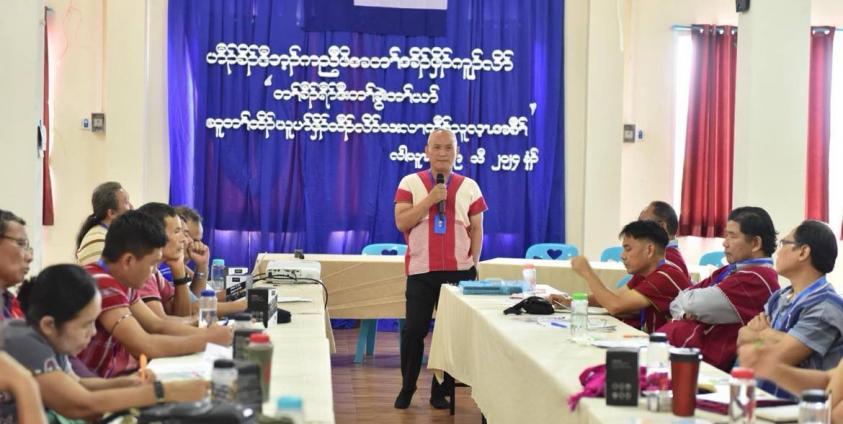At the international Karen ethnic seminar held on the Thailand-Myanmar border from June 6-8, five action plans were adopted to ensure the Karen people's right to determine their own destiny, it was announced on June 17.
The establishment of a Karen political system led by representatives elected by the Karen people, and the development of a high-quality Karen military force under a unified command were among the five action plans.
"The delegates at the seminar shared the aspiration for a leader elected by the Karen people. The Karen revolutionary movement is currently in a transition phase, and there is a strong desire for the Karen people to have the opportunity to elect their own leaders in the future”, said Saw Albert Cho, a main advocate for the seminar.
Other action plans include ensuring sufficient human resources in Karen organizations, developing the economy under the rule of law with full responsibility for regional development, and providing adequate humanitarian aid for war-displaced people.
The three-day seminar was attended by members of the Central Executive Committee of the Karen National Union (KNU), leaders from certain districts KNU, representatives of the Karen National Liberation Army (KNLA), and delegates from Karen social organizations. They gathered to address political challenges, and seek solutions to overcome them.
"After 75 years, the Karen revolution has evolved to achieve stable control in certain areas.
To develop these regions, we need skilled people to return and collaborate. This will ensure steady and rapid progress. We also hope scholars and young people abroad will come back to contribute”, Saw Albert Cho said.
According to the press release following the seminar, all attending delegates pledged to collectively work towards establishing a government capable of providing political and security assurances for the entire Karen nation.
About 80 individuals attended the seminar, including officials from KNU and KNLA, Karen representatives from various countries including the United States, Canada, Australia, New Zealand, the Netherlands, and Norway, as well as representatives from social organizations, local and border Karen communities, and independent consultants.








